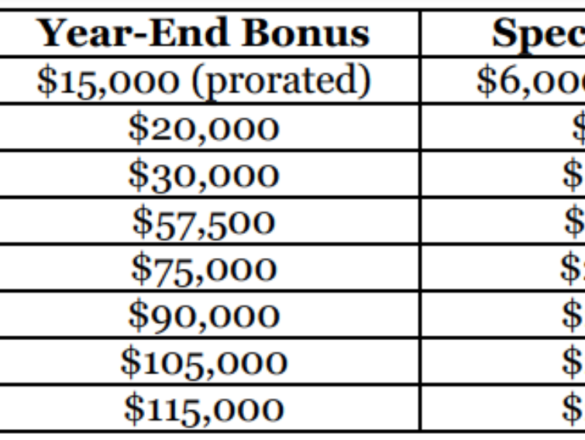Introduction
Cravath Scale 2024 is set to significantly impact legal salaries and the compensation structure within law firms. As one of the most influential pay scales in the legal industry, the Cravath Scale dictates the salary expectations for associates at prestigious law firms.
Understanding how this updated scale will affect lawyers, law firms, and the broader legal landscape is crucial for both aspiring attorneys and law firm managers alike.
What is the Cravath Scale 2024?
The Cravath Scale 2024 refers to the compensation structure introduced by Cravath, Swaine & Moore LLP, one of the leading law firms in the U.S. This pay scale has long been the benchmark for how large law firms compensate their associates.
When Cravath updates its scale, it often leads other top firms to follow suit. As a result, the Cravath Scale 2024 has become a critical marker for legal salaries nationwide.
Historical Background of the Cravath Scale
The Cravath Scale has been in existence for decades, setting the standard for associate salaries at top law firms. Cravath’s pay structure is renowned for its transparency and consistency, making it a trusted reference for legal professionals.
Each year, Cravath typically announces its salary increases, and these updates create ripples throughout the industry, with many firms adopting similar pay adjustments.
How the Cravath Scale 2024 Differs from Previous Years
The Cravath Scale 2024 introduces several changes that will influence salaries in law firms. It brings higher compensation for associates, particularly in the early years of their careers.
This shift aims to retain top talent and adapt to the growing competition among law firms. Unlike previous years, where pay increases were modest, the 2024 update reflects a more aggressive response to market demands.
Impact of the Cravath Scale 2024 on Associates’ Salaries
The Cravath Scale 2024 significantly raises the starting salaries for first-year associates. For many large law firms, this change translates into better pay for junior lawyers.
The new scale also adjusts the salaries at higher levels, ensuring that more experienced associates see increases that match their years of experience and performance.
This shift will allow law firms to attract and retain top talent in an increasingly competitive legal job market.
Why the Cravath Scale 2024 Matters to Law Firms
For law firms, adopting the Cravath Scale 2024 is essential for remaining competitive in the market. By offering competitive salaries, firms can attract the best and brightest legal minds, which ultimately benefits their clients.
Moreover, firms that align with the Cravath scale are seen as industry leaders, setting a high standard for pay structures and career progression.
How the Cravath Scale 2024 Affects Law Firm Culture
While salary increases under the Cravath Scale 2024 are beneficial to associates, they also play a role in shaping law firm culture. With higher pay, firms may see increased expectations for performance and billable hours.
On the other hand, some firms may find that by aligning with the Cravath scale, they also need to focus on improving work-life balance to retain top talent.
The Role of Cravath in Setting Industry Standards
Cravath’s influence in the legal world is significant. Updating the Cravath Scale 2024 continues to set the tone for salary standards in the legal industry.
This scale helps to ensure that firms remain competitive by offering salaries that match or exceed those of other firms in the market. As such, Cravath’s pay structure serves as a key barometer for law firm salaries across the country.
The Cravath Scale 2024 and Law School Graduates
The Cravath Scale 2024 has a profound impact on recent law school graduates. Aspiring attorneys can now look forward to higher salaries straight out of law school, especially if they land positions at prestigious firms that follow the Cravath scale.
This creates a more attractive financial proposition for law school graduates, who often enter the profession burdened with student loan debt.
Challenges Faced by Law Firms with the Cravath Scale 2024
While the Cravath Scale 2024 offers higher salaries, it also presents challenges for law firms. For many firms, especially mid-sized ones, it can be difficult to keep up with the rising costs associated with paying associates at or near the Cravath scale.
To manage these increases, firms may need to find ways to streamline operations, enhance efficiency, or reconsider their approach to hiring and retention.
Long-Term Implications of the Cravath Scale 2024
In the long term, the Cravath Scale 2024 may have several important implications for the legal industry. It could lead to even greater salary competition among firms, pushing salaries higher across the board.
Additionally, as law firms compete for top talent, it may result in a shift in hiring practices, with firms looking more closely at not just experience and qualifications but also the potential for future leadership and growth.
How Will the Cravath Scale 2024 Affect Legal Work-Life Balance?
One of the growing concerns with higher salaries under the Cravath Scale 2024 is the potential for an increase in work demands.
As associates earn more, there may be heightened expectations for performance, billable hours, and overall output.
Law firms will need to find ways to balance higher pay with efforts to maintain a healthy work-life balance, especially given the high stress and long hours often associated with big law firms.
The Future of Law Firm Compensation
The success of the Cravath Scale 2024 could inspire more law firms to adopt similar pay structures. As the legal job market becomes increasingly competitive, firms that do not offer competitive salaries may find it harder to attract top-tier talent.
Therefore, it is likely that the Cravath Scale 2024 will set a new precedent for the entire industry, influencing how other firms structure their compensation and benefit plans.
Is the Cravath Scale 2024 Sustainable for the Long Term?
One critical question surrounding the Cravath Scale 2024 is whether it is sustainable in the long term. As law firms increase salaries to keep pace with industry demands, they must also manage their operational costs and profitability.
Maintaining such high salary levels may eventually lead firms to explore alternative business models, including technology integration, outsourcing, and changes to the traditional billable hour structure.
Conclusion
The Cravath Scale 2024 marks a significant shift in the legal industry, offering higher salaries to associates while posing challenges and opportunities for law firms.
As firms look to attract and retain talent in a competitive market, the 2024 updates to Cravath’s scale will likely set the stage for future compensation trends.
The effects on work culture, hiring practices, and firm sustainability will be felt for years to come, making it an essential development for both legal professionals and firms to monitor closely.




